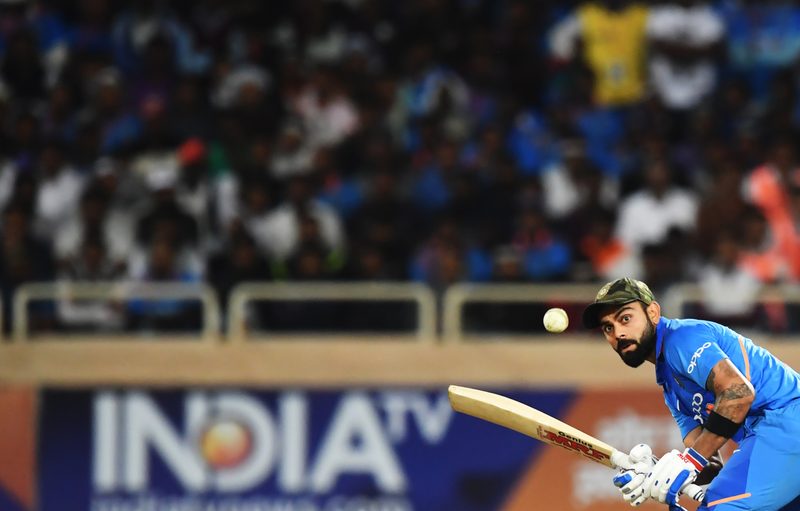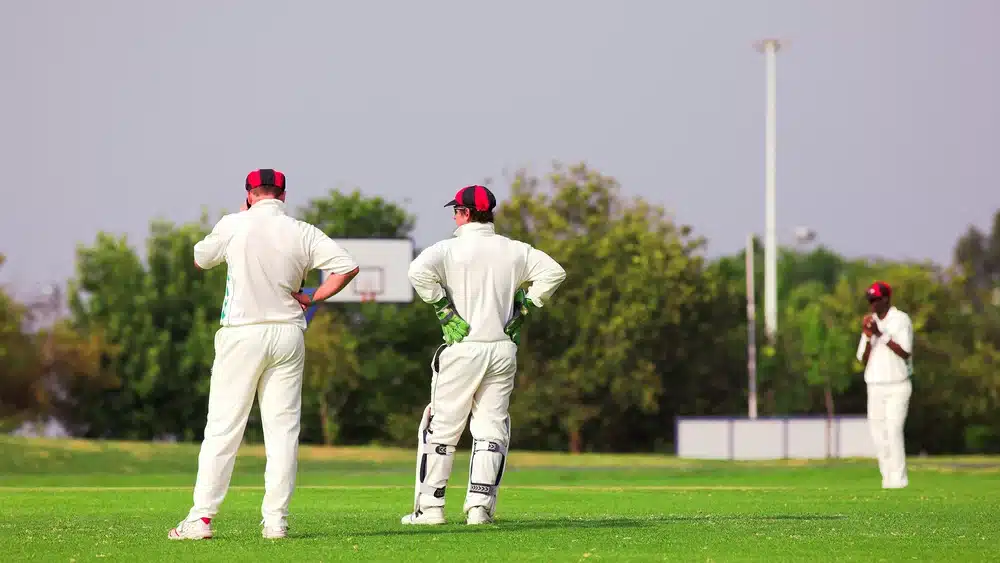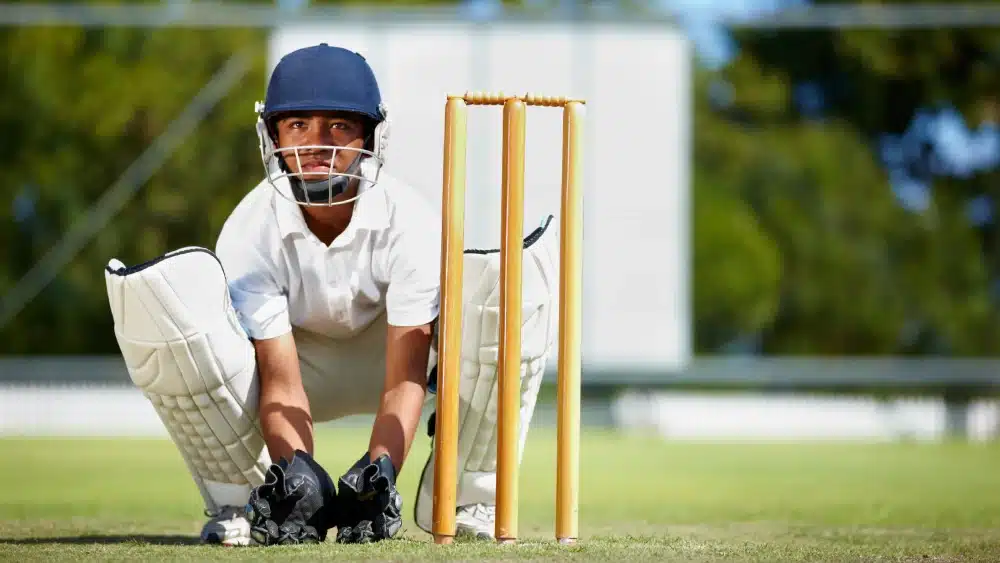
The stars are aligned in his favour, the legends are talking highly of him and the statistics are manifesting the greatness of his dexterity. If you are left in a conundrum, this has well and truly been an elucidation of Indian captain, Virat Kohli; for at least a couple of years now.
Dibyangshu Sarkar / AFP
The eminence he brings with the bat in his hand is an absolute artistry, so much so that the all-time great, Vivian Richard has mentioned Kohli reminds him of himself. If you reckon this illustration is enough, you also need to apprehend the fact that he has already been outlined as a G.O.A.T by former England captain, Michael Vaughan.
The scrupulous hard work Kohli has put to achieve this proficiency is beyond everything, and in a cricket-cracked country like India, thinking about him as the demi-god of the current generation is an ideal perspective. After all, he is just eight centuries shy of equaling Sachin Tendulkar's record of 49 ODI tons. And when you speak numbers, it only takes him 5.29 innings (least by any batsman) to score a century.
His virtuosity while batting arguably remains unmatchable – at least in the current era – but that hypothesis of Kohli being the sole reason for India's recent triumphs is an utter prejudice to the other members of the squad.
There's this common presumption – exactly like what the Indian ultras had during Sachin Tendulkar’s reign – that if Kohli performs, India’s batting order ticks. And when he doesn't, they fail. There have been several instances of such, but those who carry the aforementioned conception tend to forget the contribution of the likes of Rohit Sharma, Shikhar Dhawan or even of those who come down the order.
2019 started off in poor fashion for Kohli on a personal note. The 30-year-old and his men were tasked to chase 289 by the hosts Australia. It was an arduous task, to say the least, given how the Australian pacers were fairing. Kohli, on his part, could only manage three runs off eight deliveries and although the team lost, the calmness and composure were personified by the likes of Rohit Sharma (133) and former captain MS Dhoni (51).
The third ODI at Melbourne Cricket Ground was all about the bowling brilliance of Yuzvendra Chahal, whose contribution of 6/42 restricted Australia to a mere 230. India though found themselves lagging at 113/3 and this is when Dhoni and Kedar Jadhav picked up the thrust and helped India in earning a history victory at the land Down Under.
Not to forget the opening brilliance of Rohit Sharma and Shikhar Dhawan in the second ODI against New Zealand at Bay Oval, where India went on to register 324.
The graph above justifies that even when Kohli falls, the rest pick up the pieces and organise the pride. And the fourth and fifth ODI against Australia in Mohali and Delhi — where India registered respectable totals — remains a perfect specimen.
And then there's this scepticism over his potentiality as a captain. There is nothing against Kohli, and there is no disrespect against him, but there’s this growing sense of concern over his leadership as sometimes he seems like a unidirectional kingpin.
Kohli’s management lacks that tactical prowess which India never got deprived of under Dhoni. When under pressure, the skipper in him scrambles and need someone who can guide him home. The textbook illustration of the fact remains India’s second ODI against Australia in Nagpur when it was Dhoni, who decided to go with Vijay Shankar for the final over. The decision was Dhoni’s sagacity which paid off to absolute perfection.
Kohli indeed remains a pure genius with the bat, but his character becomes completely contrary as far as leadership is concerned. Not every great batsman is a great leader after all.




















